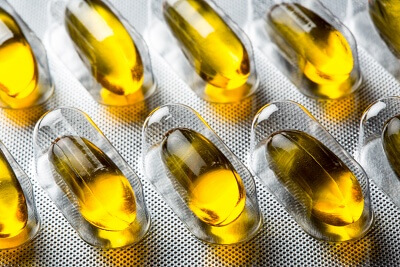
Vitamin D, also called “the sunshine drug” forms in the skin’s deeper layers through the absorption of sunlight. The vitamin is crucial to immune and metabolic function of the human body. You can also acquire it easily and quite cheap, in the form of supplements. Best of all, it might also help us in the fight against the virus. So, should we all be taking it right now?
In March 2020, as coronavirus deaths in the UK began to rise, two hospitals in northeast England started checking vitamin D levels from patients. The ones who were low, have received extremely high doses of it. Studies had suggested that having enough vitamin D in your system plays a huge role in immune and metabolic function. It also decreases the risk of some community-acquired respiratory illnesses. But these findings were quickly disputed, and no one released any official guidance. When the endocrinology and respiratory units at Newcastle along with other health institutions made an informal recommendation to its staff to prescribe vitamin D, people saw the move as rather unusual. The official statement was that there is literally no risk of prescribing high doses of vitamin to people. Considering the outgoing crisis, they had to act fast and try it. There was no time for debate.
The General Response
It didn’t take long before clinicians and endocrinologists all over the world began discussing about whether sufficient levels of vitamin D might help decrease coronavirus-related mortality rates. Some believed the nutrient to be a cheap and effective treatment available for everyone. Others thought of it as a waste of time. During March, the government’s scientific advisers looked deeply into the existing evidence and decided that there wasn’t enough to act in any direction. But in April, dozens of doctors wrote to the British Medical Journal saying that the correction of vitamin D deficiencies is a safe and simple measure that could become a potential Covid-19 fighting method.
In the Newcastle hospitals, patients that were vitamin D-deficient, received extremely high oral doses of the nutrient. The staff hadn’t gone as far as clearly associate vitamin D levels with overall death rates, but only three patients who received the high doses died, and all of them were fragile and in their 90s.
 Several other studies made reports with similar findings. During a Spanish study from early September, 50 patients with Covid-19 received a high dose of vitamin D, while another 26 patients did not receive the treatment. Half of the patients who didn’t receive vitamin D had to be placed in intensive care, and two later died. Only one patient from those who received treatment with vitamin D required ICU admission, and they were later released with no following complications.
Several other studies made reports with similar findings. During a Spanish study from early September, 50 patients with Covid-19 received a high dose of vitamin D, while another 26 patients did not receive the treatment. Half of the patients who didn’t receive vitamin D had to be placed in intensive care, and two later died. Only one patient from those who received treatment with vitamin D required ICU admission, and they were later released with no following complications.
All this emerging research pointed towards vitamin D’s effectiveness. All the observational studies have shown strong vitamin D effects on infectiousness, morbidity, and mortality. Maybe it’s no coincidence that this disease exists seriously above 40 degrees latitude, because that’s where the UV light no longer appears in the winter. All this evidence pointed towards the positive effects of vitamin D on the fight against the coronavirus.
Both the National Institute for Health and Care Excellence and Public Health England, having scrutinized the potential benefits of vitamin D in the risk of coronavirus, continued to declare that there was insufficient evidence to take real action. They deemed the previous research to be of poor quality, not enough of it, and most importantly, not convincing enough.
The frustration began to grow along with these statements. People believed that if you’ve got something that could potentially save tens of thousands of lives, and you say there’s not quite enough evidence, then you should do something about it. In October, the pressure began to pile in on the government. There was an increasing consensus in the UK that the government’s focus should shift on immunological health.
It is clear already that COVID-19 kills you if you’ve got a very weak immune system. Vitamin D improves immune health. It has a much more general-purpose effect than other treatments and it has no risk whatsoever.
Please follow the link if you are interested in Expat Health Insurance

Leave a Reply